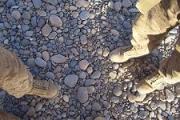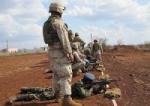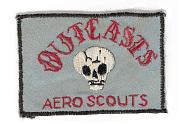If I had my way, as well as the $$$ to do it, it would come down to a simple matter of airtime. By the spots during primetime, and keep buying them until there is a perceptible change. I'd steer clear of any references to the administration, the Pentagon, or Dept of State.
It would be simple and to the point, much like a campaign ad. the images of civic and humanitarian action are played...the really good stuff of the barefoot children getting shoes, food, and clean water. A school being built and backpacks, pens, and paper distributed. Cut away at the end and have a volunteer servicemember (or maybe even shift through all races and services in the process) make a very clear statement: "The people of Iraq are indeed the future of Iraq. My struggle isn't about bringing victory to the American people, but victory for every citizen of Iraq and freedom from the tyranny that continues. Please help me continue my mission."
It's subtle and implicit, and could avoid the PR landmines that are out there if we just don't try to think too much about it. Call it appealing to the apple pie base if you will, because it is that base that continues to erode every day. Few folks who are on the fence have the time to immerse themselves in the imagery, so we would need to take it to them, then push it to liveleak and youtube, NPR and PBS. Make it something household that people chatter about. That's what I believe happens when a new Marine Corps recruiting commercial comes out. People buzz when the images, background music, and message are important and right.












Bookmarks